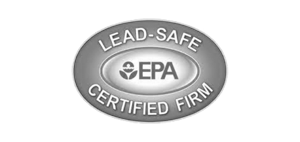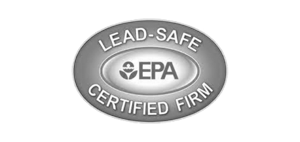Memphis tap water safety is a topic of concern for many residents as they question the quality and potential health risks associated with drinking tap water in the city. The tap water in Memphis comes from the Memphis Aquifer, a natural underground reservoir that acts as a natural filter to remove impurities. However, there are some concerns regarding the safety of the tap water.
Lead levels in Memphis tap water are higher than what health officials consider safe. Chlorine is added to the water for disinfection, which can affect the taste and smell. Disinfection byproducts (DBPs) are also a concern, as they are associated with an increased risk of cancer and other health issues. The Environmental Working Group has identified contaminants in Memphis tap water that exceed health guidelines.
To ensure the safety of your drinking water, it is recommended to use water filters that are specifically optimized for Memphis tap water. These filters can help remove contaminants and improve the overall quality of the water you consume.
Key Takeaways:
- Memphis tap water quality is a concern for residents due to elevated lead levels
- Chlorine and disinfection byproducts can affect the taste and smell of tap water
- The Environmental Working Group has identified contaminants in Memphis tap water
- Using water filters specifically designed for Memphis tap water is recommended
- Regular testing of tap water is important to ensure its safety
Contaminants and Concerns in Memphis Tap Water
Memphis tap water undergoes testing to identify and measure various contaminants that may pose health risks to consumers. While the tap water in Memphis comes from the Memphis Aquifer, a natural underground reservoir that acts as a filter, there are still some concerns surrounding its safety.
One of the main concerns is the presence of lead in the tap water. Health officials consider the levels of lead in Memphis tap water to be higher than what is considered safe. Lead exposure can lead to a range of health issues, particularly in children, including developmental delays and learning difficulties.
In addition to lead, another concern is the disinfection process. Chlorine is added to the tap water for disinfection purposes, which can affect the taste and smell. Furthermore, the disinfection byproducts (DBPs) that are formed as a result of this process have been associated with an increased risk of cancer and other health problems.
The Environmental Working Group has identified contaminants in Memphis tap water that exceed health guidelines. These contaminants can vary, but they include substances like arsenic, radium, and chromium-6. To ensure the removal of these contaminants, it is recommended to use water filters that are specifically optimized for Memphis tap water. These filters can effectively remove the impurities and provide cleaner, safer drinking water for you and your family.
| Contaminant | Health Guidelines |
|---|---|
| Arsenic | Maximum Contaminant Level (MCL): 10 ppb |
| Radium | MCL: 5 pCi/L (pico curies per liter) |
| Chromium-6 | MCL: 10 ppb |
By being aware of the contaminants and concerns associated with Memphis tap water, and taking the necessary precautions such as using water filters, you can ensure that you and your family have access to safe drinking water.
Conclusion
Considering the concerns surrounding Memphis tap water, it is crucial for residents to be aware of the potential risks and take necessary precautions to ensure the safety of their drinking water.
The tap water in Memphis is sourced from the Memphis Aquifer, a natural underground reservoir that acts as a filtration system to remove impurities. However, there are certain issues that raise concerns about the safety of the tap water.
One major concern is the elevated levels of lead found in Memphis tap water, which exceed the safety limits set by health officials. Lead exposure can have detrimental effects on human health, particularly for children and pregnant women.
In addition, chlorine is added to the water for disinfection purposes. While this process is essential to eliminate harmful bacteria, it can affect the taste and smell of the tap water.
Another concern is the presence of disinfection byproducts (DBPs) in Memphis tap water. DBPs are formed when chlorine reacts with organic matter in the water and are associated with an increased risk of cancer and other health issues.
In light of these concerns, it is recommended that residents utilize water filters that are specifically optimized for Memphis tap water. These filters can effectively remove contaminants and provide an extra layer of protection for households.
By staying informed about the quality of their tap water and taking necessary precautions, residents of Memphis can ensure the safety of their drinking water and maintain their overall well-being.
FAQ
Is it safe to drink tap water in Memphis?
While the tap water in Memphis comes from the Memphis Aquifer, a natural underground reservoir that acts as a natural filter to remove impurities, there are some concerns regarding its safety. Lead levels in Memphis tap water are higher than what health officials consider safe, and disinfection byproducts (DBPs) are also a concern. The Environmental Working Group has identified contaminants in Memphis tap water that exceed health guidelines. It is recommended to use water filters that are specifically optimized for Memphis tap water to remove these contaminants.
What are some specific concerns regarding Memphis tap water?
Some specific concerns regarding Memphis tap water include higher levels of lead than what is considered safe by health officials, the presence of disinfection byproducts (DBPs) that are associated with an increased risk of cancer and other health issues, and the presence of other contaminants exceeding health guidelines, as identified by the Environmental Working Group.
How can I ensure the safety of my tap water in Memphis?
To ensure the safety of your tap water in Memphis, it is recommended to use water filters that are specifically optimized for Memphis tap water. These filters can help remove contaminants such as lead and disinfection byproducts, providing cleaner and safer drinking water for you and your family.










